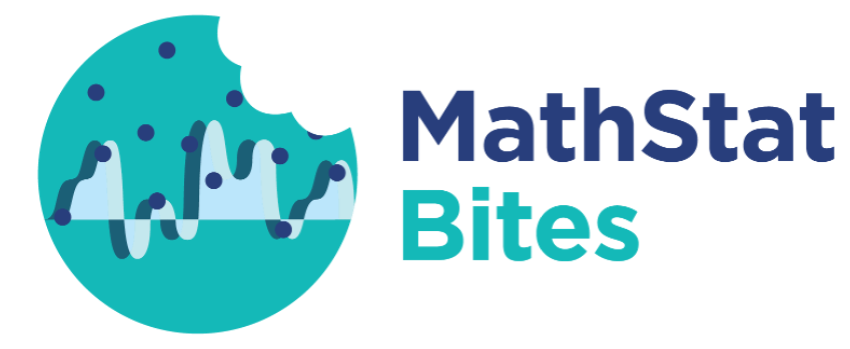MathStatBites values the potential of everyone who is interested in mathematics and statistics to contribute to and learn from MathStatBites, regardless of their personal identity. We expect MathStatBites to be a safe community for the open exchange of mathematical and statistical information and communications, free from harassment, intimidation, bias, bullying, threats, and scientific dishonesty. Any such behavior will not be tolerated. Those found not to be abiding by these basic expectations of good behavior and ethical scientific conduct will be removed as a participant in MathStatBites.
MathStatBites Code of Conduct
MathStatBites is committed to providing an educational, safe, welcoming, and productive environment for early career writers and undergraduate editors who help create this website, regardless of individuals’ personal identity, including race or ethnicity, religion, ability, socioeconomic status, age, physical appearance, economic or professional status, country of origin, sex, gender or gender expression, or sexuality.
MathStatBites expects all of our community members, including writers, editors, and readers to:
- Be considerate and respectful to all writers and editors.
- Refrain from demeaning, discriminatory, threatening, bullying, or harassing behavior, materials, and speech (more below).
- Speak up if they observe anything that conflicts with this Code of Conduct.
Unacceptable behavior from any community member will not be tolerated. Unacceptable behavior includes, but is not limited to:
- Intimidating, threatening, bullying, harassing, abusive, discriminatory, derogatory, or demeaning speech, materials, or conduct by or directed toward any writer or editor.
- Violence, threats of violence, or violent language by or directed against another person.
Harassment of participants will not be tolerated in any form. Harassment includes:
- Bullying and threats
- Offensive written comments related to gender, gender identity and expression, sexual orientation, disability, physical appearance, body size, race, age, religion, national origin, affinity group, etc.
- Viewing or sharing sexual images.
- Deliberate or perceived intimidation, stalking, or following.
- Unwelcome sexual attention.
- Advocating for, or encouraging, any of the above behavior.
If you are being harassed, notice that someone else is being harassed, or have any other concerns, please contact the Editor-in-Chief or Deputy Editor immediately.
Writers, editors, or readers who are determined by the MathStatBites Editor-in-Chief to have violated this Code of Conduct will be removed from participating in MathStatBites.
We value your participation, and want to make MathStatBites as educational, productive, and fun as possible.
Expectations for Writers
MathStatBites is an educational platform. Writers are expected to treat their editors with respect. Editors represent our target audience for MathStatBites and their expected level of knowledge should be understood accordingly. Because the editors are primarily undergraduate students, they are much more likely to recognize and alert writers to their blind spots, developed after years of expertise in a particular field. MathStatBites provides a unique opportunity to pair with undergraduate students who are interested in advancing their math and statistics knowledge and communications skills with an early career scholar/communicator, and the process should be viewed as part of the learning experience for all participants.
Remember that no one receives purely positive feedback. We are all trying to improve our communication skills and receiving feedback is a part of that improvement. While your editor’s critique is meant to improve your piece, remember that all critique is somewhat subjective.
If a critique doesn’t resonate with you in any way, you are expected to discuss it with your editor and come to an agreement. Writing for MathStatBites is not writing a peer-reviewed journal article. Therefore, treat the review and editorial process as a two-way learning experience. You are not compelled to make every single recommended change, but should reflect on why a suggestion does or doesn’t work. You decide how far and how many of the changes will make their way into your work.
Expectations for Editors
Editors are expected to treat their writers with respect. The pairing between each editor and writer is meant to be a learning experience for both parties. Editors will gain new understanding about math and statistics research, as well as think critically on how difficult it is to communicate these challenging ideas to a broader audience. Writers will hone their craft in communicating with those outside their subfield. All interactions between editors and writers should be a positive collaborative effort.
Giving constructive feedback means responding to someone’s work in a way that builds them up rather than tears them down. It comes from a place of support and mutual respect. This can be a tricky dynamic to navigate. It can be tempting to give vague affirmations like “it’s great” in order to preserve someone’s feelings, but if we consider that the goal of editorial feedback is to strengthen work, then affirmations do not help us reach that goal. Instead, reflect on what form and tone of feedback would be most helpful to you as a writer, and aim to give that kind of feedback in return.
